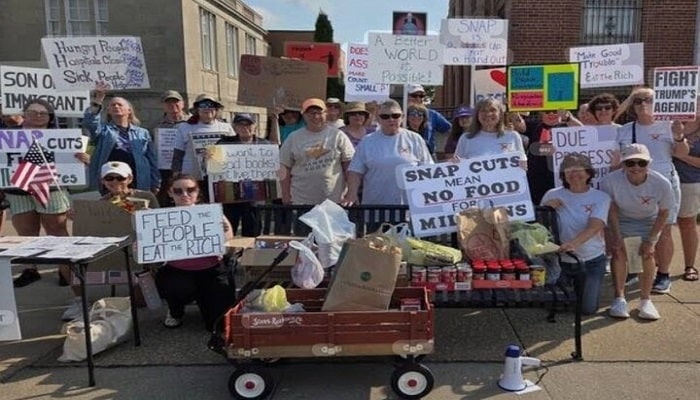PNN – American media reported that five states in the country declared a state of emergency following the ongoing government shutdown and the suspension of food aid programs.
According to the report of Pakistan News Network, citing Axios, following the shutdown of the US federal government and the suspension of payments related to the Supplemental Nutrition Assistance Program (SNAP), several states in the country, including New York, Delaware, Rhode Island, Virginia, and Maryland, have declared a state of emergency.
The move comes as about 42 million people across the country will lose their nutrition benefits if the government shutdown continues. According to data released through October 31, 2025, sixteen of the fifty states have allocated additional funding to food banks, two have provided direct financial assistance to households, and eight have adopted a combination of both types of support. In contrast, twenty-five states have yet to announce any plans for alternative assistance.
Read more:
America in government shutdown trap; paying military salaries is Trump’s new problem
In New York, Democratic Gov. Katie Hockley declared a state of emergency on Thursday. She said about three million people in the state would lose their benefits this week, and the federal government had been paying nearly $650 million a month to run the program in New York.
Stressing that “no state can fully replace that amount,” Hokul announced that his administration has allocated $65 million in state funds for emergency food assistance. In his speech, he also criticized the Trump administration, saying: It is immoral for people to suffer because Republicans refuse to release emergency food supplies.
In Maryland, Democratic Governor Wes Moore issued an executive order declaring a state of emergency and announced the allocation of $10 million in emergency funding to strengthen the state’s food safety nets. And he announced in a statement: Blocking funding for food aid is not only illegal, it is cruel.
The USDA announced last week that it could not use emergency reserve resources to pay program benefits due to the government shutdown, and warned that there would be no reimbursement from the federal government if states tried to cover the costs from their own budgets.
The decision has left many states in a bind, as it is legally and financially difficult to use domestic emergency funds without a guarantee of repayment.

